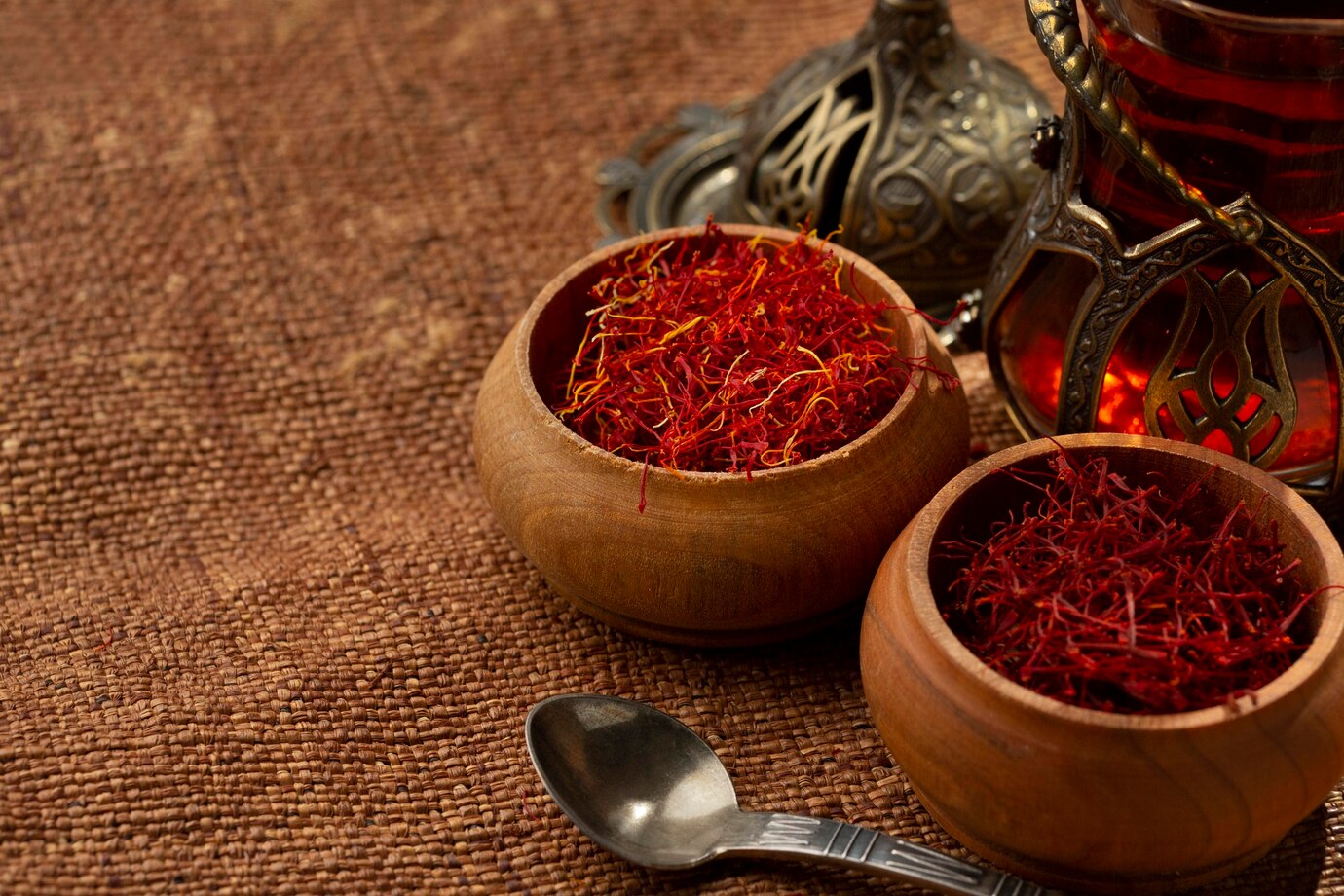is saffron good for heart patient
As a result of cardiovascular diseases, both the developed world and developing countries now experience high mortality rates.
Crocus sativus, a species of crocus in the family Iridaceae, is the species from which saffron (Crocis sativus) is derived. Three stigmas are present on the flower, which are the distal ends of the plant’s carpels. Often, dried stigmas are used in food as a seasoning and coloring ingredient along with their style, the stalk that joins the stigmas to the rest of the plant.
Since the Persian Empire, saffron has been the most expensive spice by weight in the world. It comes from Iran. Foods with this dye will also have a golden yellow hue due to the carotenoid dye, crocin. Among these characteristics, saffron is a much-requested ingredient for many foods around the globe. As well as having medicinal properties, saffron is also used in cooking.
As well as imparting a vibrant yellow-orange hue to foods, saffron also tastes bitter. In Persian, Arab, Central Asian, European, Indian, Moroccan, and Cornish cuisines, saffron is commonly used for its flavor and color. Historically used to heal wounds, saffron has also been discovered as having anticarcinogenic properties (suppresses cancer), antimutagenic (prevents mutations), immunomodulating properties, and antioxidant properties. In addition to its use in cooking, saffron is also used in dyeing fabrics and perfumery, especially in China and India. It has been shown that saffron can assist in the treatment of depression and Alzheimer’s disease in recent studies.
Saffron and Heart Disease Protection
As a result of its antioxidant properties, saffron tea can lower the risk of cardiovascular diseases. In addition to protective properties, saffron contains flavonoids, especially lycopene. The Department of Medicine and Indigenous Drug Research Center conducted a clinical study in which saffron was found to be effective in treating cardiovascular diseases. Twenty people, including 10 with heart disease, were enrolled in the study.
According to the Indian Journal of Medical Sciences, all the participants showed improved health, but those with cardiovascular diseases showed more progress. The presence of crocetin in saffron also reduces cholesterol levels in the blood and intensity of atherosclerosis, which reduces the risk of heart attacks. Saffron is the richest source of riboflavin.1,2 Saffron is also rich in folate, an essential nutrient, as well as the richest source of riboflavin.
Saffron is often consumed liberally in Spain, where cardiovascular diseases are quite rare. It may have something to do with that fact. A compound of safranal , crocetin, has been found to increase the activity of two antibiotics in the body.11 In addition, two compounds of safranal have been found to slightly enhance the activity of the immune system.
Find out how saffron keeps your heart healthy in these 5 ways!
- Saffron helps lower high blood pressure. Combined with its antioxidant properties, saffron can help you maintain the health of your blood by lowering your blood pressure.
- Saffron lowers cholesterol. Lowering cholesterol is one of the benefits of this awesome spice. According to some studies, saffron reduces cholesterol by 50%! Using saffron can lower cholesterol levels in the blood because it contains crocetin, a chemical that reduces cholesterol.
- Saffron reduces the risk of heart disease. As previously mentioned, crocetin, a chemical found in saffron, is also believed to contribute to the prevention of heart disease by increasing oxygen levels in the body. In fact, in countries where saffron is used a lot in cooking, for example Spain, the occurrence of heart disease is very low.
- Saffron is an anti-inflammatory agent. saffron contains antioxidants that are beneficial for inflammation. Saffron is known to have anti-inflammatory properties that are beneficial to cardiovascular health. They help to keep that circulation flowing in a healthy way.
- 5.Saffron helps maintain healthy arteries and veins. In addition to its antioxidant properties, saffron helps to maintain healthy arteries and veins within your blood system. In order for your body’s circulatory system to be healthy, you must have healthy arteries and veins.
can i take saffron daily?
You can add saffron to your diet without having to consume too much of it by cooking with it. In general, eating up to 1.5 grams of saffron per day is safe, but eating too much can be harmful.
does saffron raise blood pressure?
According to studies, high blood pressure affects 9.4 million people globally each year, making it one of the most serious and prevalent diseases on earth.
In healthy males and females, the volatile factor safranal and crocin pigment of saffron have been shown to reduce blood pressure (BP). When elderly suffer from hypertension or prehypertension, resistance training (RT) lowers central BP.
Accordingly, saffron strengthens the blood circulation system, thereby reducing the risk of heart disease. Saffron is a source of minerals like thiamin and riboflavin, which promote a healthy heart and prevent a variety of cardiac ailments.
How does saffron help with heart health?
Lower blood pressure: Some research has shown that saffron can help lower blood pressure.
Lower cholesterol: Saffron may help lower bad cholesterol (LDL) levels and increase good cholesterol (HDL) levels.
Prevent atherosclerosis: Saffron’s antioxidant properties can prevent damage to blood vessels and the formation of fatty plaques.
Improve heart function: Some studies have shown that saffron can help improve heart function in patients with heart failure.
Reduce inflammation: Saffron has anti-inflammatory properties and can help with heart health by reducing inflammation in the vessels.
Reduce stress and improve mood: Saffron has traditionally been used to reduce stress and depression. These properties can indirectly affect heart health, as stress and depression can be risk factors for heart disease.
How much saffron is suitable for heart patients?
There is no specific dose for saffron consumption in heart patients yet. However, consuming 30 mg of saffron daily is generally considered safe.
Does consuming saffron interact with heart medications?
In some cases, saffron may interact with heart medications. For this reason, be sure to consult your doctor before consuming saffron.
Who should not consume saffron?
- Pregnant and lactating women
- People with bleeding disorders
- People who are allergic to saffron
How can saffron be consumed?
- Adding saffron to foods and drinks
- Consuming saffron tea
- Consuming saffron supplements (under the supervision of a doctor)
Where can we buy good Saffron?
To buy high-quality saffron, you can visit Tida Saffron Company. This company is one of the most reputable saffron producers and suppliers and offers quality and authentic products to its customers.
Tida Silk Road Trading Trade is here to deliver it’s best services for supplying and exporting Iranian Saffron, herbs, nuts, fresh fruits and vegetables to all importers from all over the world.
Why Tida Saffron?
- Guaranteed Quality: Tida Silk Road Trading Saffron procures its saffron from the best farms in Khorasan and maintains the quality and aroma of saffron using modern processing methods.
- Product Variety: The company offers different types of saffron, including Sargol Saffron, Super Negin Saffron, and Pushal saffron and Saffron Powder and saffron rock candy in various packaging.
- Product Authenticity: Tida Saffron guarantees the authenticity of its products and offers its saffron with standard and authenticity certificates.
- Easy to Buy: You can buy Tida Saffron saffron through reputable stores and also online from the company’s website.
- Credibility and History: Tida Saffron Company has a long and illustrious history in the field of saffron production and supply.
How to buy saffron from Tida?
buy high-quality dried fruit products from Tida Saffron .For information on saffron price, please visit contact us page or Order Onlie.














